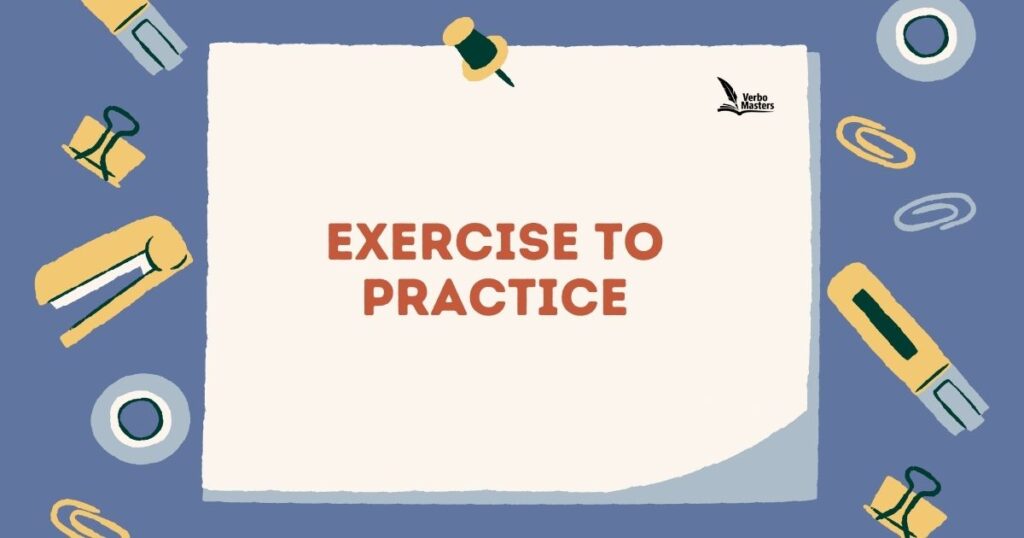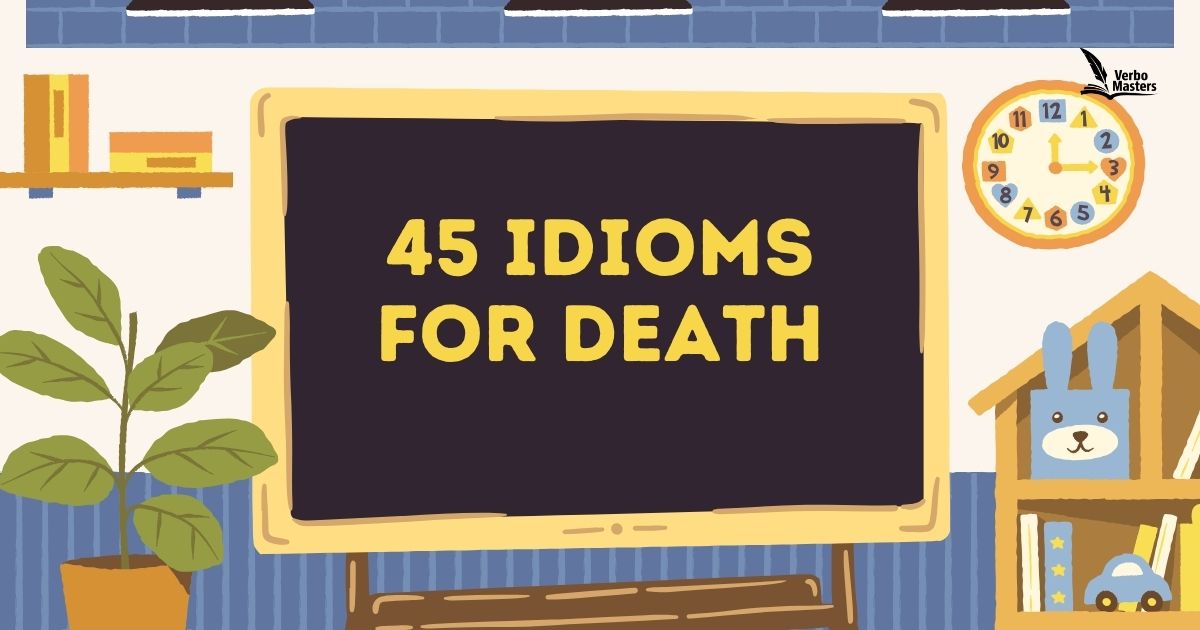Death is a topic that can be difficult to approach, but idioms provide a way to express it more softly or humorously. These idioms help us discuss a sensitive subject without being too blunt, offering a mix of seriousness and lightheartedness. From phrases that evoke peaceful rest to those that add a touch of wit, these expressions offer unique ways to talk about death in conversation.
Using idioms for death can help ease the emotional weight of the topic and allow for more open discussions. Whether you’re seeking a way to comfort someone or simply trying to speak on the subject with care, idioms offer a wide variety of options. With phrases that have evolved over time, you’ll find both poetic and practical expressions to describe life’s inevitable end.
You can also read; 35 Metaphors for Love
Idioms for Death
1. Bite the dust
Meaning: To die, often in a violent or dramatic way.
In a sentence: “He fought bravely in the war, but in the end, he bit the dust.”
Other ways to say: Pass away, meet one’s end.
2. Pushing up daisies
Meaning: A euphemism for being dead and buried.
In a sentence: “He may be pushing up daisies now, but he was a legend in his time.”
Other ways to say: Resting in peace, underground.
3. Meet one’s maker
Meaning: To die and face one’s creator.
In a sentence: “After a long and fulfilling life, she finally met her maker.”
Other ways to say: Pass away, depart this life.
4. Cash in one’s chips
Meaning: To die or pass away, often used in the context of gambling.
In a sentence: “He cashed in his chips after a long battle with illness.”
Other ways to say: Call it a day, end one’s journey.
5. Sleep with the fishes
Meaning: To be dead, often associated with mobster culture and a violent death.
In a sentence: “They were so ruthless, they made sure he slept with the fishes.”
Other ways to say: Gone for good, meet one’s fate.
6. Bite the big one
Meaning: A casual, often humorous way of saying someone has died.
In a sentence: “After that accident, he really bit the big one.”
Other ways to say: Pass away, kick the bucket.
7. Take a dirt nap
Meaning: A colloquial and slightly humorous way to say someone has died.
In a sentence: “After living a long life, he’s finally taking a dirt nap.”
Other ways to say: Rest in peace, lay down forever.
8. Give up the ghost
Meaning: To die, or to stop functioning.
In a sentence: “After years of struggling, his old car finally gave up the ghost.”
Other ways to say: Pass on, expire.
9. Meet one’s end
Meaning: To die or meet death.
In a sentence: “Sadly, he met his end in a tragic accident.”
Other ways to say: Die, pass away.
10. Turn up one’s toes
Meaning: To die, often implying a peaceful passing.
In a sentence: “At 90 years old, he turned up his toes in his sleep.”
Other ways to say: Rest in peace, pass on.
11. Sing one’s swan song
Meaning: The final act or performance before death.
In a sentence: “Before he passed, he gave his swan song at the concert.”
Other ways to say: Final farewell, last performance.
12. Go to one’s eternal reward
Meaning: To pass away and go to heaven or the afterlife.
In a sentence: “She went to her eternal reward after a life well-lived.”
Other ways to say: Cross over, ascend to heaven.
13. Join the choir invisible
Meaning: A poetic way to say someone has died and joined those who have passed.
In a sentence: “He’s joined the choir invisible, singing with the angels.”
Other ways to say: Rest in peace, passed away.
14. Go belly up
Meaning: To die, often used for businesses or inanimate things.
In a sentence: “The old company finally went belly up after years of struggling.”
Other ways to say: Close down, go out of business.
15. Go to Davy Jones’s locker
Meaning: To die, especially when it involves the sea.
In a sentence: “The sailors were lost at sea and went to Davy Jones’s locker.”
Other ways to say: Sink, lost forever.
16. Meet one’s Waterloo
Meaning: To encounter a fatal or decisive defeat.
In a sentence: “The general met his Waterloo on the battlefield, losing the war.”
Other ways to say: Meet one’s end, face defeat.
17. Shuffle off this mortal coil
Meaning: A poetic way of saying someone has passed away.
In a sentence: “He shuffled off this mortal coil in his sleep after a long life.”
Other ways to say: Pass on, die.
18. Go out with a bang
Meaning: To die in a dramatic or exciting manner.
In a sentence: “He went out with a bang, living life to the fullest right to the end.”
Other ways to say: Go out in style, die dramatically.
19. Check out
Meaning: A casual way of saying someone has died.
In a sentence: “He checked out peacefully in his sleep.”
Other ways to say: Pass away, depart.
20. Take the last train
Meaning: A metaphorical way of saying someone has passed on.
In a sentence: “She took the last train home after battling illness for so long.”
Other ways to say: Depart this life, pass away.
21. Slip away
Meaning: To die quietly and peacefully.
In a sentence: “She slipped away in the night, surrounded by loved ones.”
Other ways to say: Fade away, pass gently.
22. Turn up one’s toes to the daisies
Meaning: To die and be buried, often used in a more poetic sense.
In a sentence: “After years of illness, she turned up her toes to the daisies.”
Other ways to say: Rest in peace, lie beneath the soil.
23. Go to one’s rest
Meaning: To die and rest in peace.
In a sentence: “After a long and meaningful life, he finally went to his rest.”
Other ways to say: Rest in peace, pass away.
24. Fall off the perch
Meaning: A humorous and casual way to say someone has died.
In a sentence: “The old parrot fell off the perch after many happy years.”
Other ways to say: Pass on, die.
25. Go the way of all flesh
Meaning: To die, as it’s inevitable for all living things.
In a sentence: “After a long battle with cancer, she went the way of all flesh.”
Other ways to say: Pass away, meet one’s end.
26. Slip the mortal coil
Meaning: To die, especially in a poetic manner.
In a sentence: “He slipped the mortal coil after years of struggling with his health.”
Other ways to say: Pass on, depart this life.
27. Cross the great divide
Meaning: To die, especially with the idea of crossing into the afterlife.
In a sentence: “She crossed the great divide peacefully in her sleep.”
Other ways to say: Pass away, enter the next life.
28. Cash in one’s checks
Meaning: To die, particularly after living a long life.
In a sentence: “After 90 years, he cashed in his checks and left this world.”
Other ways to say: Die, pass away.
29. Buy the farm
Meaning: A colloquial way of saying someone has died.
In a sentence: “Sadly, he bought the farm in a car accident.”
Other ways to say: Pass away, meet one’s end.
30. Exit stage left
Meaning: A theatrical way of saying someone has passed away.
In a sentence: “After his final performance, he exited stage left.”
Other ways to say: Leave, pass away.
31. Go to the happy hunting ground
Meaning: A phrase used to describe going to the afterlife, especially in Native American traditions.
In a sentence: “He went to the happy hunting ground, where he can rest in peace.”
Other ways to say: Pass on, enter eternal rest.
32. Bite the bullet
Meaning: To endure something difficult or unpleasant, often used metaphorically for death.
In a sentence: “He had to bite the bullet after a long battle with disease.”
Other ways to say: Face death, go through the inevitable.
33. Go to glory
Meaning: A euphemism for passing away, often associated with the afterlife.
In a sentence: “She’s gone to glory, where she’ll be at peace forever.”
Other ways to say: Rest in peace, ascend to heaven.
34. Pass into the great beyond
Meaning: To die and move on to the afterlife.
In a sentence: “He passed into the great beyond after a long and happy life.”
Other ways to say: Depart, cross over.
35. Slip the surly bonds of earth
Meaning: To leave the physical world and enter the afterlife.
In a sentence: “He slipped the surly bonds of earth and soared into eternity.”
Other ways to say: Pass on, depart this life.
36. Take a permanent vacation
Meaning: A humorous way to say someone has passed away.
In a sentence: “After a long illness, she took a permanent vacation.”
Other ways to say: Die, rest forever.
37. Fall into eternal sleep
Meaning: A peaceful way to say someone has died.
In a sentence: “After the struggle, he finally fell into eternal sleep.”
Other ways to say: Rest in peace, pass away.
38. Slip into the great unknown
Meaning: To die, with the idea of moving into the unknown afterlife.
In a sentence: “He slipped into the great unknown after a long illness.”
Other ways to say: Pass on, cross over.
39. Meet one’s demise
Meaning: A formal way to say someone has died.
In a sentence: “The warrior met his demise on the battlefield.”
Other ways to say: Pass away, end one’s life.
40. Pay the piper
Meaning: To face the consequences or to die.
In a sentence: “After a life of indulgence, he finally had to pay the piper.”
Other ways to say: Face death, suffer the consequences.
41. Go to one’s final resting place
Meaning: A respectful way of saying someone has died.
In a sentence: “She was laid to rest in her final resting place beside her family.”
Other ways to say: Rest in peace, pass away.
42. Meet the Grim Reaper
Meaning: A metaphor for death, implying the encounter with the personification of death.
In a sentence: “He met the Grim Reaper after a long battle with illness.”
Other ways to say: Die, pass away.
43. Punch one’s ticket
Meaning: A euphemism for dying, often used in the context of travel.
In a sentence: “She punched her ticket and moved on to the next stage.”
Other ways to say: Die, depart this world.
44. Take the celestial journey
Meaning: A poetic way to say someone has passed away and moved on to the afterlife.
In a sentence: “He took the celestial journey, leaving his earthly worries behind.”
Other ways to say: Ascend to heaven, pass over.
45. Depart this life
Meaning: A formal way to say someone has died.
In a sentence: “After a long and fulfilling life, she departed this life peacefully.”
Other ways to say: Pass on, leave this world.
Exercise to Practice

Exercise: Fill in the blanks with the appropriate idiom for death.
- After battling cancer for years, he finally __________ in his sleep.
- The old dog __________ after a long, happy life.
- After a full life, she went to __________ and is at peace now.
- The brave soldier __________ while fighting for his country.
- After the accident, he __________ far too soon.
- He was a good man, but he __________ after a sudden heart attack.
- He left this world and __________, never to be seen again.
- The businessman __________ after years of struggling to stay afloat.
- After a long journey, she took __________ and passed away peacefully.
- After his heroic efforts, he __________ on the battlefield.
- The singer gave his __________ during his final performance.
- The ship went down, and the crew __________ at sea.
- After years of service, the old factory __________ and was shut down.
- The beloved pet __________ and was buried in the backyard.
- He __________ after his battle with illness, but lived a fulfilling life.
- The famous artist __________ and became a legend.
- The elderly woman __________ and left behind a legacy.
- She __________ after the surgery, much to the sadness of her family.
- After completing his final task, he __________ peacefully.
- The old man __________ after a long life of adventures.
Answers:
- slipped away
- went to rest
- eternal reward
- met his maker
- bought the farm
- bit the dust
- fell off the perch
- went belly up
- a dirt nap
- met his Waterloo
- sang his swan song
- slept with the fishes
- fell off the perch
- bought the farm
- checked out
- took the last train
- crossed the great divide
- slipped into the great unknown
- exited stage left
- passed into the great beyond
FAQ’s
What is the meaning of “bite the dust”?
“Bite the dust” is a euphemism for dying, often used in a dramatic or violent context. It originates from a phrase describing someone falling to the ground after being struck or killed, similar to how someone might fall after taking a fatal blow.
Why do people use “sleep with the fishes” as a way to refer to death?
“Sleep with the fishes” is a phrase popularized by gangster culture, meaning someone has been killed and dumped into the sea. It’s a way of saying the person is gone forever, often implying a violent or mob-related death.
What does “take the last train” mean in reference to death?
“Take the last train” is a metaphorical way to say that someone has passed away. The phrase implies a final journey, much like taking a train that leads to their last destination, symbolizing the end of life.
How is “meet one’s maker” used in conversation?
“Meet one’s maker” is a way of saying someone has passed away and is now facing their creator or God. It’s often used to express the inevitability of death, highlighting that everyone will eventually return to their maker.
What does it mean to “go to one’s eternal reward”?
“Go to one’s eternal reward” is a comforting way to refer to death, suggesting that the person has passed on to an afterlife or a place of peace. It emphasizes the belief in a reward or peaceful afterlife for those who lived well.
Conclusion
Death is an inevitable part of life that often leads to the use of euphemisms and idioms. Phrases like “bite the dust” and “sleep with the fishes” are common expressions used to describe someone passing away in a less direct way. These idioms often reflect cultural beliefs, humor, or a dramatic sense of finality.
While many of these idioms can sound harsh or dark, they also carry a sense of inevitability or even humor in how we cope with loss. Expressions such as “meet one’s maker” or “take the last train” highlight the idea of a final journey, whether literal or figurative. Ultimately, these idioms serve as a way to soften the impact of death, making it easier to discuss with others.

I’m John Smith, a language enthusiast dedicated to helping writers, students, and professionals master the art of clear and effective communication. Whether you’re looking for grammar tips, writing guides, or common mistake corrections, you’ll find valuable insights to improve your language skills. Let’s make grammar simple and fun!

